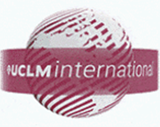Detailed introduction of the University of Castilla La Mancha:
Introduction and Overview
Geographical location: Located in the autonomous region of Castilla-La Mancha in central Spain, the autonomous region is the birthplace of Spanish. The university has campuses in Albacete, Ciudad Real, Cuenca and Toledo.
Student and faculty size: more than 30,000 students and 2,300 faculty.
History and founding time
The University of Castilla-La Mancha was established on June 30, 1982, but its origins can be traced back to the Royal University of Toledo in 1485, with a history of more than 600 years.
School strength
Teaching quality: As a comprehensive public university in Spain, it offers 100 undergraduate degrees, 172 graduate degrees and 39 doctoral degrees, covering humanities, social sciences, natural sciences, engineering, medicine and other fields. Its official degrees are recognized by the Spanish government and the international community.
Faculty: It has about 2,300 academic staff who have rich teaching and research experience in their respective professional fields and can provide students with high-quality education and teaching services.
Scientific research strength: The school has 35 Research and innovation are the core of the school. In-depth scientific research has been carried out in many fields and remarkable results have been achieved, such as the Gerardo de Cremona International Award launched by the Toledo Translation Institute in 2015 to promote translation in the Mediterranean region.
Institutional Nature
Public University.
Educational Philosophy
Committed to exploring the essence behind things, deepening scientific knowledge, stimulating cultural vitality, and sharing it with students. Focus on cultivating students' innovative ability, practical ability and comprehensive quality, and encourage students to actively participate in scientific research and social practice activities to meet the needs of social development.
Key laboratories and disciplines
Key disciplines:
Environmental science and ecology: ranked third in Spain.
Engineering majors: Civil engineering, agronomy, industrial engineering, chemical engineering, power engineering, automated electronic engineering and other majors are among the top ten in Spain.
Trade majors: obvious characteristics, with a high level of business education.
Medicine: Medical-related majors have a long history and have trained many medical professionals.
Key laboratories: The school's 35 research institutes and R&D centers provide advanced technical platforms and experimental conditions for scientific research in related disciplines.
Department settings
The university has a total of four campuses, each with multiple departments, as follows:
Albacete Campus: has a medical department, a department of economics and business science, a department of law, a department of humanities, a college of advanced agricultural engineering technology, a college of advanced information engineering technology, a college of industrial engineering, a college of nursing, a college of teachers, a college of labor relations, etc.
Ciudad Real Campus: School of Chemical Sciences, Department of Law and Social Sciences, Department of Arts, School of Advanced Civil Engineering Technology, School of Information Technology, School of Industrial Engineering, School of Agricultural Technology, Almaden Polytechnic Institute, Puerto Lano University Learning Center, School of Nursing, Teacher Training College, etc.
Cuenca Campus: School of Social Sciences, Department of Fine Arts, Department of Education and Humanities, Polytechnic Institute, School of Social Work, School of Nursing, Teacher Training College, etc.
Toledo Campus: School of Law and Social Sciences, School of Environmental Sciences, School of Sports Sciences, Department of Humanities, School of Nursing and Physiotherapy, School of Industrial Technology Engineering, Teacher Training College, etc.
Ranking
Academic Ranking of World Universities 2020: 1 major is in the top 50 in the world, and 10 majors are in the top 200 in the world.
Times Higher Education World University Rankings 2020: Shortlisted in the top 300 young universities in the world and the top 200 in the European teaching rankings.
2019: Ranked 25th in Spanish domestic universities and 842nd in the world university rankings.
Expenses
Tuition fees: Tuition fees vary depending on the course and degree level. Generally speaking, the tuition fees for undergraduate and master's programs are relatively low, about 1,000-2,000 euros per academic year, and the tuition fees for doctoral programs are even lower, usually below 1,000 euros.
Living expenses: About 600-1,000 euros per month, including accommodation, food, transportation and other expenses.
Campus environment
Campus distribution: The four campuses are located in different cities, each with its own unique cultural atmosphere and historical background. Among them, the Toledo and Cuenca campuses are world cultural heritage sites. The campus buildings complement the surrounding historical and cultural landscapes, providing students with a strong cultural atmosphere and learning environment.
Campus facilities: The campus is equipped with modern teaching facilities and complete living facilities, including libraries, laboratories, sports facilities, student dormitories, etc., which provide convenience for students' study and life. The school's library has a collection of more than 1.33 million books, providing students with rich learning resources.
-
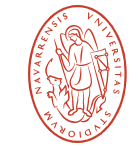
University of Navarra
-
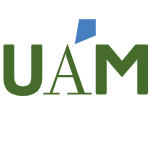
Autonomous University of Madrid
-

Polytechnic University of Catalonia
-

CEU University of San Pablo
-
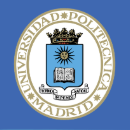
Technical University of Madrid
-

University of Lleida
-
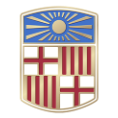
University of Barcelona
-

University of Oviedo
-
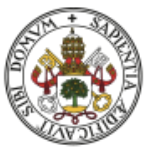
University of Valladolid
-
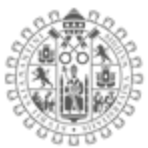
University of Salamanca
-

Mesoamerican University
-

Istmo University
-

Mariano Galvez University of Guatemala
-

Regional University of Guatemala
-

Galileo University
-

Francisco Marroquín University
-

Rafael Landívar University
-

University of the Valley of Guatemala
-

University of San Carlos of Guatemala
-

Technological Institute of Tlaxcala Plateau
-

Golfo University
-

Technological University of South Sonora
-

Technological University of Huejotzingo
-

Tizimín Institute of Technology
-

Chilpancingo Institute of Technology

